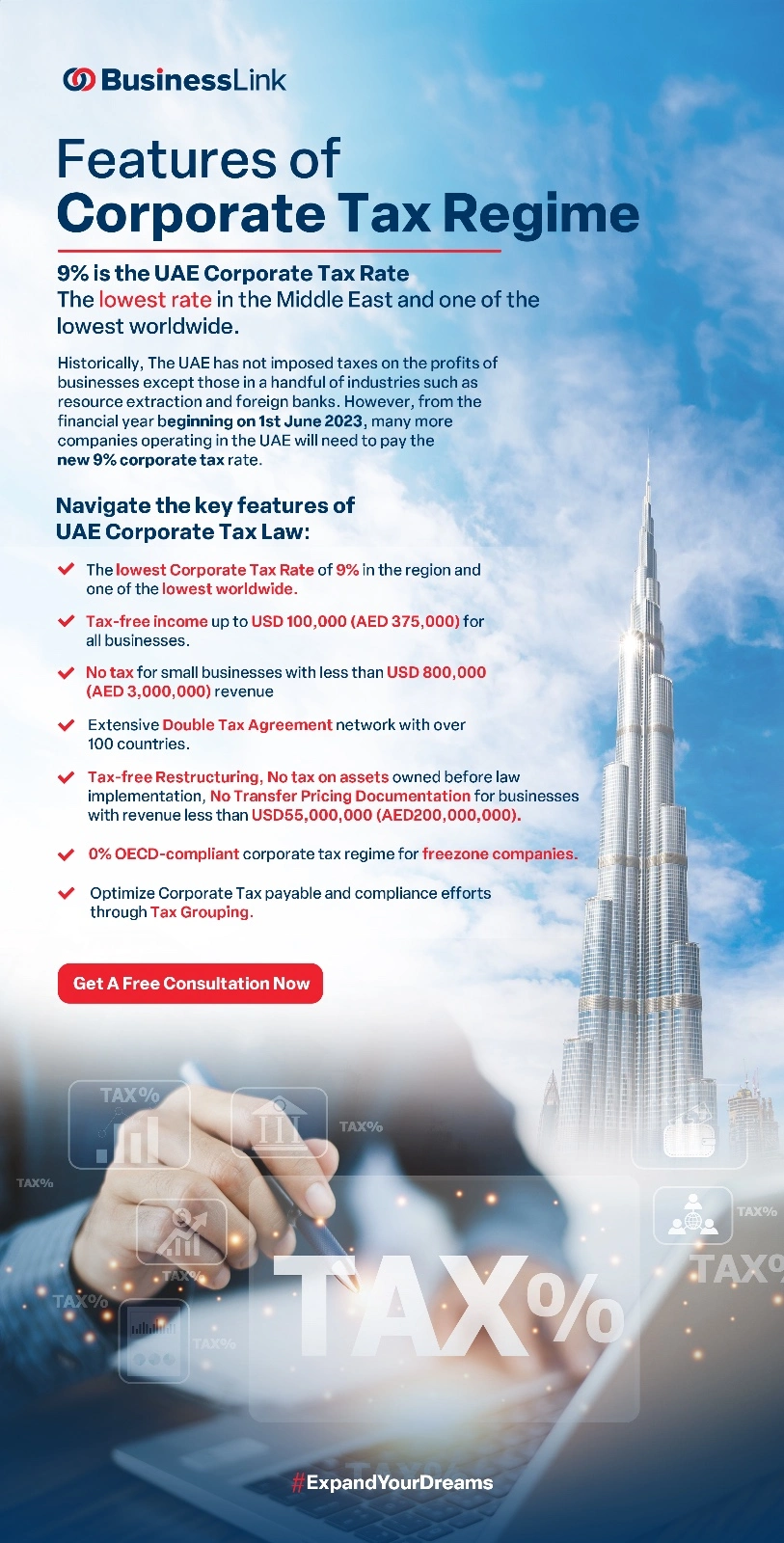Historically, the UAE has been recognized for its exceedingly low taxation policies. Residents are exempt from personal income tax, and a majority of businesses have been spared from the UAE corporate taxes. The lion’s share of government income was historically derived from the hydrocarbon sector, with both state-owned and private entities contributing approximately 50% in taxes from their earnings.
Moreover, foreign banks have consistently been subject to a 20% tax on their operational profits, and the hospitality sector in Dubai, including hotels and eateries, has carried its share of tax burdens. Lately, the UAE has been steering its economic focus away from oil and gas to broaden its markets, leading to an increase in the number of tax-exempt companies. Considering the reduced income from traditional energy resources and the rapid economic evolution, the rationale to introduce taxation on the business revenue becomes evident as a means to bolster future development in areas such as infrastructure, education, and health services.
UAE Corporate Tax Regime in 2024
On 9 December 2022, the UAE released the Federal Decree-Law No. (47) of 2022 on the Taxation of Corporations and Businesses (herein referred to as the ‘CT Law’). The CT Law will apply to Taxable Persons for financial years commencing on or after 1 June 2023.
On May 8, 2023, the UAE Cabinet of Ministers enacted Cabinet Decision No. (49), imposing a 9% company tax on particular companies. This decree is perceived as a strategic initiative. It is geared toward broadening the UAE’s sales streams past oil, while simultaneously upholding its function as a pivotal commercial center within the region.
In addition to the corporate tax, the UAE has also announced that large multinational firms with profits of more than EUR 750 million will have to pay a 15% tax – this is in line with the Global Minimum Corporate Tax Rate Agreement.
The new UAE corporate tax will come into effect in the tax year beginning June 1st, 2023, so most companies will have to start setting aside money to pay their taxes from that date. Businesses whose tax year begins in January will not have to start paying tax on revenues generated before 1st January 2024.
Who is Eligible to Pay UAE Corporate Tax ?
As per the UAE Federal Tax Authority (FTA), all taxable persons and businesses in the UAE are eligible to pay a 9% corporate tax rate if their annual net profits exit ِAED375,000
- Taxable income up to AED 375,000 is subject to 0% corporate tax in Dubai, UAE
- The UAE corporate tax rate is 9% for income exceeding AED 375,000
- Multinational corporations that fall under Pillar 2 of the BEPS 2.0 framework and are subject to OECD Base Erosion and Profit-Sharing laws will be subject to a 15% corporate tax rate. This applies to corporations with combined worldwide revenues exceeding AED 3.15 billion.
Navigate the Key Features of the UAE Corporate Tax Law

- The lowest Corporate Tax Rate of 9% in the Middle East and one of the lowest worldwide.
- Tax-free income up to USD 100,000 (AED 375,000) for all businesses.
- No tax for small businesses with less than USD 800,000 (AED 3,000,000) revenue
- Extensive Double Tax Agreement network with over 100 countries.
- Tax-free Restructuring, No tax on assets owned before law implementation, No Transfer Pricing Documentation for businesses with revenue less than USD55,000,000 (AED200,000,000)
- 0% OECD-compliant corporate tax regime for free zone companies.
- Optimize Corporate Tax payable and compliance efforts through Tax Grouping.
Taxable Entities in UAE CT
In the United Arab Emirates (UAE), diverse kinds of entities and people engaged in financial activities are taken into consideration as taxable. These consist of:
Resident Persons:
- Juridical entities (inclusive of those inside free zones) which might be incorporated, mounted, or diagnosed within the UAE, or overseas entities correctly managed and managed inside the UAE.
- Natural men and women engaging in commercial enterprise or industrial sports inside the UAE.
Non-Resident Persons:
- Entities or people without resident status that have a permanent establishment in the UAE, derive profits sourced within the UAE or have a nexus inside the UAE as defined through Cabinet Decision.
- Branches of non-resident entities inside the UAE are dealt with as the same taxable man or woman for taxation functions.
The Exemption from UAE Corporate Tax
Under the UAE Corporate Tax law, certain entities are exempt from taxation, furnished they meet precise situations:
- Entities that are part of the government structure. Entities under significant government ownership or control.
- Those involved in the extraction of natural resources are subject to specific criteria.
- Those involved in activities related to natural resources, but not directly in their extraction.
- Investment funds that meet predefined eligibility criteria.
- Entities that serve the public interest and comply with certain conditions.
- Funds established for pension or social security purposes, adhering to specific requirements.
- Additional entities or individuals as determined by a Cabinet decision.
Small Business Relief
This relief is applicable for resident persons (natural and juridical persons) to be treated as not having derived any Taxable Income in the Tax Period. The person’s net revenue should be less than or equal to AED 3,000,000 in both the current and all previous Tax periods.
Who cannot elect for the Small Business Relief?
A qualifying free zone person. In addition, members of a multinational group with consolidated group revenue of more than AED 3.15 billion.
Corporate Taxation in Free Zones
- The UAE’s free zones have become distinctly popular among entrepreneurs. Its impressive benefits include complete foreign possession, free profit repatriation, and exemption from customs duties. These free zones offer an unmatched company tax environment.
- Companies located within unfastened zones can experience a tax-loose duration ranging from 15 to 50 years, depending on the specific free region they choose.
- Business proprietors will completely own their corporations without requiring a local sponsor.
- Customs Duty Exemptions: Companies in loose zones often revel in exemptions from customs duties, which helps make importing and exporting more inexpensive.
Implication for Entrepreneurs
For entrepreneurs planning to set up a business in the UAE business landscape must have a comprehensive understanding of the UAE corporate tax. It is essential to be well-informed about the following key takeaways:
- Economic Substance Regulations (ESR): Business proprietors should observe ESR by having an actual presence within the UAE and doing sizeable business there.
- Free Zones: Entrepreneurs who want to shop on taxes need to reflect on consideration on starting companies in the UAE free zones. But it’s important to do your studies, as every unfastened sector has its own rules and advantages.
- Double Taxation Avoidance Agreements (DTAAs): Entrepreneurs who do business globally must recognize the DTAAs among the UAE and the nations they need to do commercial enterprise.
- Double Taxation Avoidance Agreements (DTAAs): Entrepreneurs must check the DTAAs between the UAE and their goal markets. This know-how can help with tax-making plans and optimization, main to efficient business operations.
- Consult Tax Professionals: UAE entrepreneurs have to partner with tax professionals such as Business Link. These specialists have deep expertise in neighborhood tax laws and might offer tailor-made recommendations within the ever-evolving corporate tax panorama of the place.
The Importance of Seeking Professional Guidance
Entrepreneurs frequently stumble upon problems while coping with the intricate UAE tax gadget. In light of this, it is strongly cautioned not to forget the worthwhile assistance supplied through skilled tax consultants or chartered accountants, which include Business Link. These professionals possess tremendous know-how and understanding which can navigate the complexities of tax planning, ensuring compliance with all pertinent regulations, even as concurrently improving your business’s economic efficiency.
For businesses operating inside the UAE, stay knowledgeable about corporate tax. It’s important to be aware by different taxes like VAT and customs obligations. To ensure your enterprise’s economic fitness, search for expert recommendations to navigate the tax machine and optimize your tax method.
Business Link is your dependable manual for all company tax topics, catering to groups of all sizes. Our expert team will navigate the complexities of the UAE corporate tax legal guidelines, supplying you with tailor-made recommendations and aid. By selecting Business Link, you may optimize your tax strategy and reap your commercial enterprise goals confidently.
Contact us today to schedule a consultation and discover how Business Link can help you achieve tax excellence.




